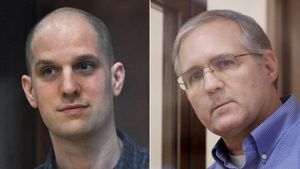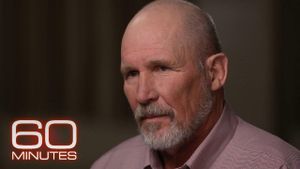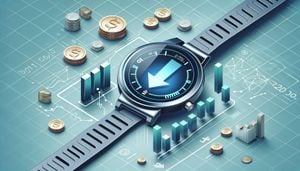Boeing's Starliner spacecraft has been at the center of attention as two NASA astronauts, Suni Williams and Butch Wilmore, find themselves stuck at the International Space Station (ISS) for far longer than planned. Initially meant to be merely an eight-day mission, their extended stay is now pushing the limits of planned missions.
The duo launched on June 5, but technical difficulties have turned their brief test trip on Starliner to something resembling a long-term residency. Their latest status update suggests these astronauts may not return to Earth until February 2025.
Engineers identified issues with several thrusters after the astronauts arrived at the ISS, which are key for maneuvering and re-entry. Out of 28 thrusters on board Starliner, five failed, raising serious concerns about the spacecraft's reliability.
NASA now has the difficult task of deciding whether to trust Starliner for the astronauts' return or to opt for SpaceX's Crew Dragon as a backup plan. Deploying SpaceX would create embarrassment for Boeing, especially since it received $4.2 billion to develop this spacecraft.
Experts have voiced significant safety concerns surrounding the crew's potential return aboard Starliner. There are risks of the spacecraft burning up if re-entry is too steep, or bouncing off the atmosphere completely if it's too shallow.
Continued malfunctions with the thrusters house another level of risk. If more of them fail during the return, Williams and Wilmore could find themselves adrift with just 96 hours of oxygen and power to attempt their return.
NASA's backup plan could mean astronauts traveling back on SpaceX's Crew Dragon capsule, possibly launching as early as September. Such arrangements would necessitate rearranging the crew, removing two Russian cosmonauts from their expected seats to accommodate Williams and Wilmore.
Meanwhile, there’s been no shortage of optimism from the astronauts themselves. During press conferences, both Williams and Wilmore expressed their enjoyment of life aboard the ISS, stating they have been having “a great time” working with their team.
“It feels good to float around and work up here with the International Space Station team,” Williams said. “I’m not complaining; Butch isn’t complaining.”
Despite the uncertainty, Williams assured everyone about their emergency preparedness. She shared their ability to undock if necessary and communicate with Earth to determine the best course home.
Boeing and NASA engineers are conducting tests to address the Starliner’s various system problems, from helium leaks to overheating thrusters. But with all the complications, there are legitimate doubts about the spacecraft's ability to return the astronauts safely.
Last March, astronaut Frank Rubio set the record for the longest spaceflight by an American at 371 days, which has provided invaluable data concerning long-term flights. The experience of Williams and Wilmore, if prolonged, could enable researchers to gain insights unique to their situation.
There are many physical concerns about their extended stay. A prolonged absence from gravitational forces impacts bone and muscle density—a risk particularly acute during long missions.
NASA recognizes the risks associated with radiation exposure from extended stays—heightening the chance of cancer and other health issues. Unlike Earth's atmosphere, the ISS does not fully shield astronauts from harmful cosmic rays.
Muscle and bone health is jeopardized without gravity, leading to weak bones and muscles as they adjust to life off Earth. NASA constantly monitors astronauts and encourages them to exercise daily to mitigate the impact of long-duration flights.
Another unexpected development those aboard the ISS may contend with is changes to eyesight, dubbed Space-Associated Neuro-ocular Syndrome (SANS). Blood volume shifts could lead to elongated eyeballs and vision changes; some astronauts have reported significant reductions in sharpness and focus.
Equally concerning are heart health issues. Research indicates astronauts may face decreased blood volume and even arrhythmias—irregular heartbeat patterns—upon returning to Earth.
Constipation is yet another unexpected problem; weightlessness complicates the process for food moving through the digestive system. Fortunately, astronauts are equipped with high-calorie diets to sustain them during long stays, which can also lead to weight loss.
Despite the dire circumstances, NASA officials will decide soon based on available data whether to keep the astronauts at the ISS. While August was suggested as the hopeful return time frame, there remains no definitive timeline.
NASA has tentatively suggested potential dates, but the astronauts’ safety remains the top priority. The ultimate objective is to return the Starliner crew to Earth with minimal risks involved, whatever it may take.
Future plans for Boeing's Starliner will likely pivot based on the outcome of this mission. A rescue mission by SpaceX could cause significant delays for other planned launches, including the Crew-9 mission.
The fallout from this situation might affect how NASA approaches partnerships with private spaceflight companies going forward. Trust and reliability are the cornerstones of such collaborations, and this has put significant scrutiny on Boeing's Starliner.
This mission has become more than just about two astronauts; it runs the risk of tainting the reputation of Boeing and their space endeavors. It brings to light the importance of accountability and performance expectations from companies involved in government contracts.
Meanwhile, Williams and Wilmore remain the ones to bridge gaps—both literally and metaphorically—between Earth and space. Courageously, they continue to engage with the ISS, their experience steadily adding to the growing body of research about long-duration space missions.



